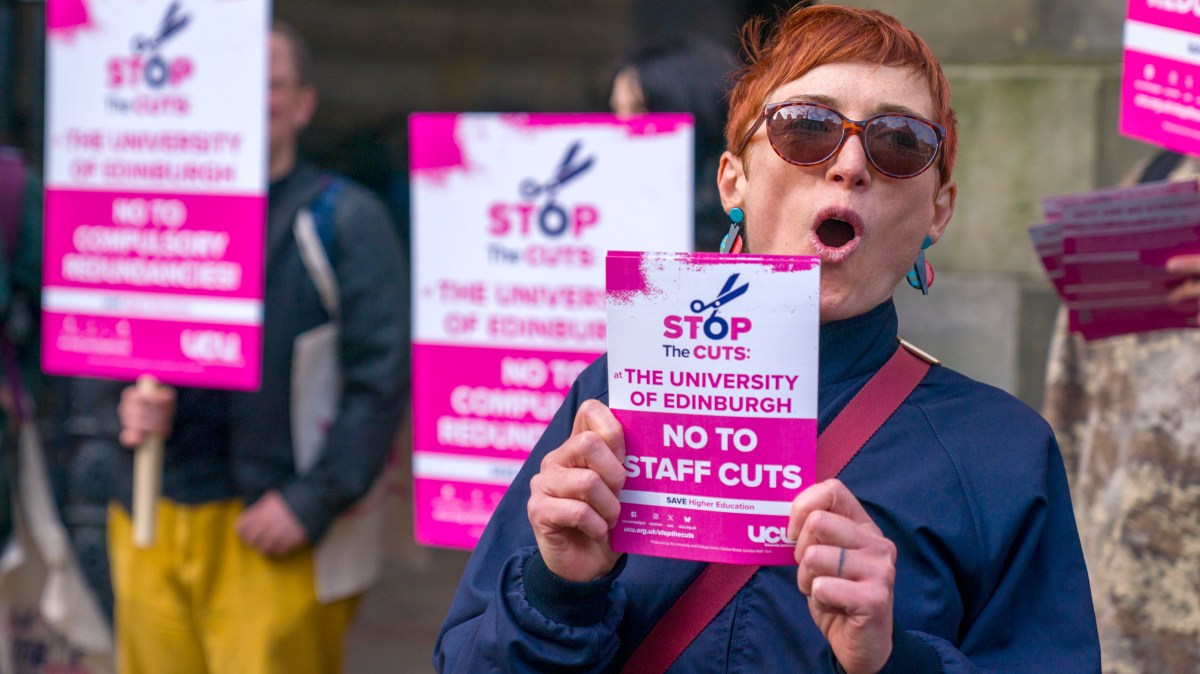Edinburgh University has been accused of wasting money on a “self-indulgent” investigation of its history of racism while making £140 million in cuts.
The university this summer published a 120-page review of its links with colonialism and slavery, revealing that its academics played an outsized role developing white supremacist theories used to justify empire. Now it has emerged that the work, which was led by two Edinburgh scholars, cost nearly £360,000 to complete.
Miles Briggs, the Scottish Conservatives’ education spokesman, from the outset objected to the research, which he claimed was “pandering to revisionist right-on views”.
He said of its cost: “This is a staggering misuse of resource at a time when Edinburgh University is at great financial peril. They are staring at a £140 million black hole and staff are about to lose their jobs, yet nearly half a million has been spent on this self-indulgent review.”

Briggs, who studied management and politics at Aberdeen’s Robert Gordon University, added: “Universities should be prioritising academic excellence instead of trying to rewrite history.”
The scholars behind the work did not respond to Briggs’s criticism, which was first made in the Daily Mail. Nicola Frith, a co-leader of the project, has previously said: “I don’t see history as something that sits in the past with a closed door. It is something that directly affects all of us today in very different and uneven ways, but it nonetheless does affect the shape of our society, our relations, everything.”
Frith and Tommy Curry oversaw the project, which argued that some of their most illustrious predecessors pushed what in the 18th and 19th centuries were new racist theories. David Hume, the philosopher, in a now-notorious footnote said he suspected that what he termed Negroes were “naturally inferior”.

David Hume (1711-1776). This portrait by Allan Ramsay is in the collection of National Gallery of Scotland, Edinburgh
FINE ART IMAGES/HERITAGE IMAGES/GETTY IMAGES
Curry has said he hopes the Scottish capital will create a centre to study the topic more. He said: “When we’re looking at why it’s important, it’s because if Edinburgh served as the pinnacle of the 17th, 18th and early 19th century for this work, why can’t it serve as the same centre to undo it in the 21st century?”
Frith, Curry and their colleagues have also faced attacks from within their field. Sir Tom Devine, an historian and retired Edinburgh University professor, earlier said their findings were not “intellectually credible” and described the university principal’s deep apology for the institution’s links to slavery and colonialism as “a rush to judgment”.

Edinburgh University, which made a surplus last year on increasing revenues, stressed the cost of the review amounted to only 0.4 per cent of its monthly running costs. The institution is facing several days of strike action by staff who do not believe it needs to make the planned cuts.
Caitlin Jones, a researcher at the university’s informatics department, said: “The … senior management have claimed that a huge amount of money needs to be cut from the university budget, in particular from the staff budget, and they haven’t agreed to rule out redundancies.
“We’re striking to say that this isn’t necessary, that the senior management shouldn’t have these cuts, because these cuts will lead to a loss of jobs — jobs that the university needs, that the university staff and students need, to provide good research and a good education, which is the purpose of this university.”
